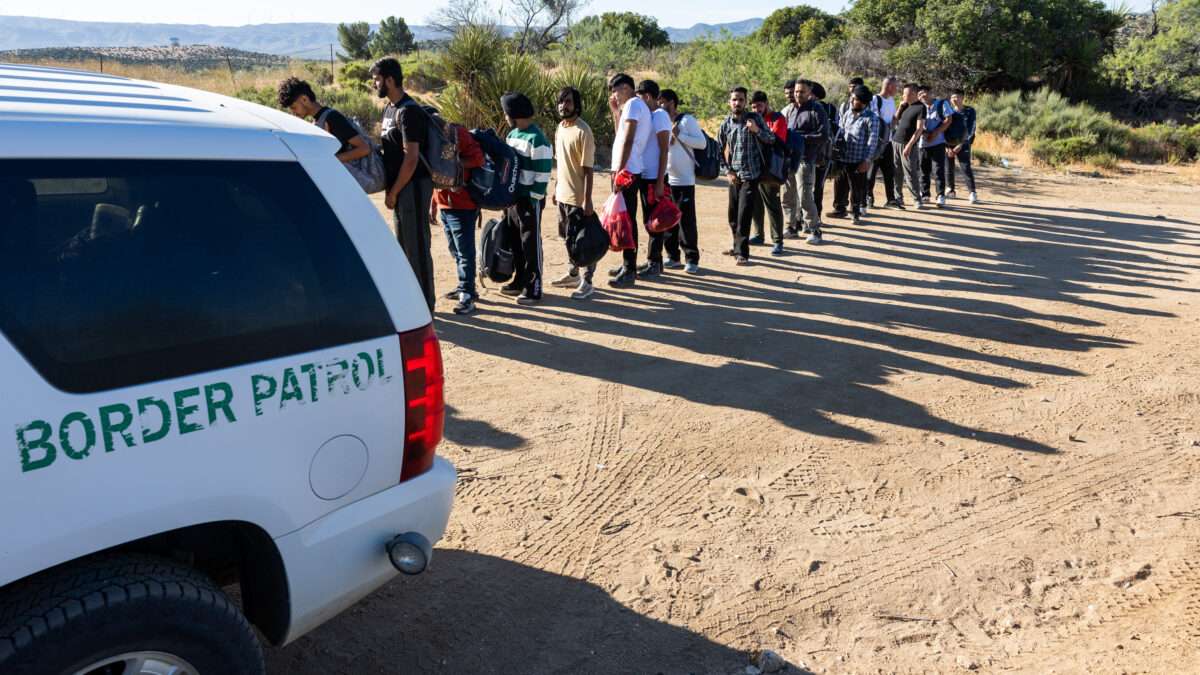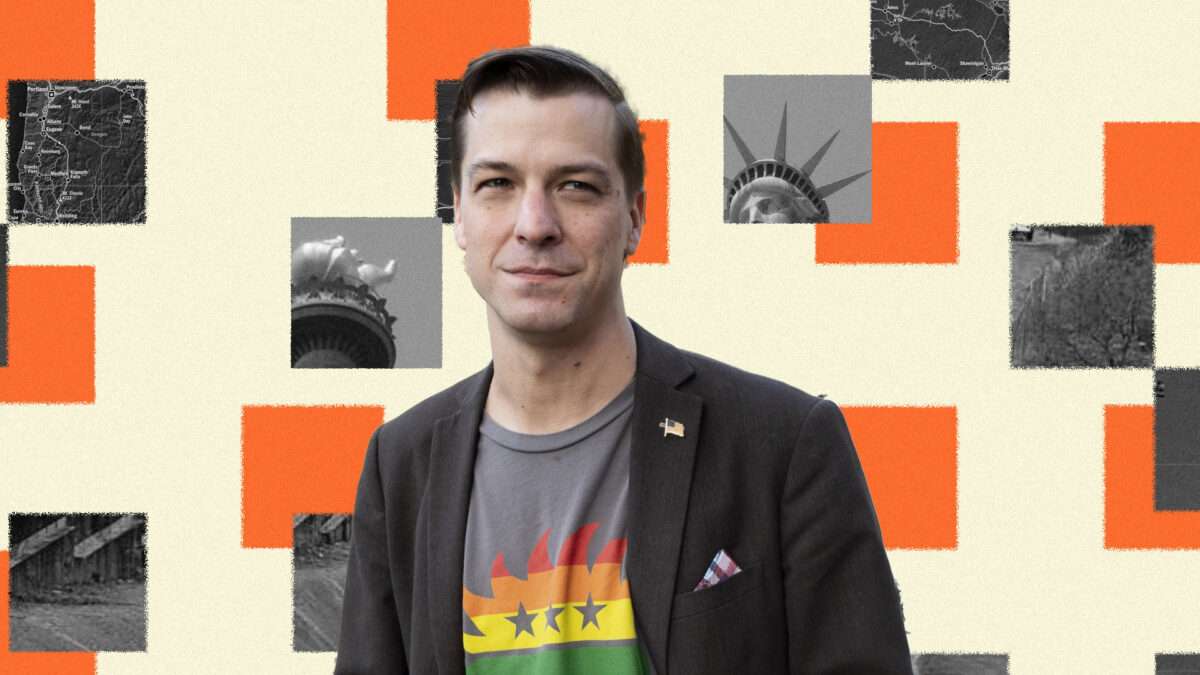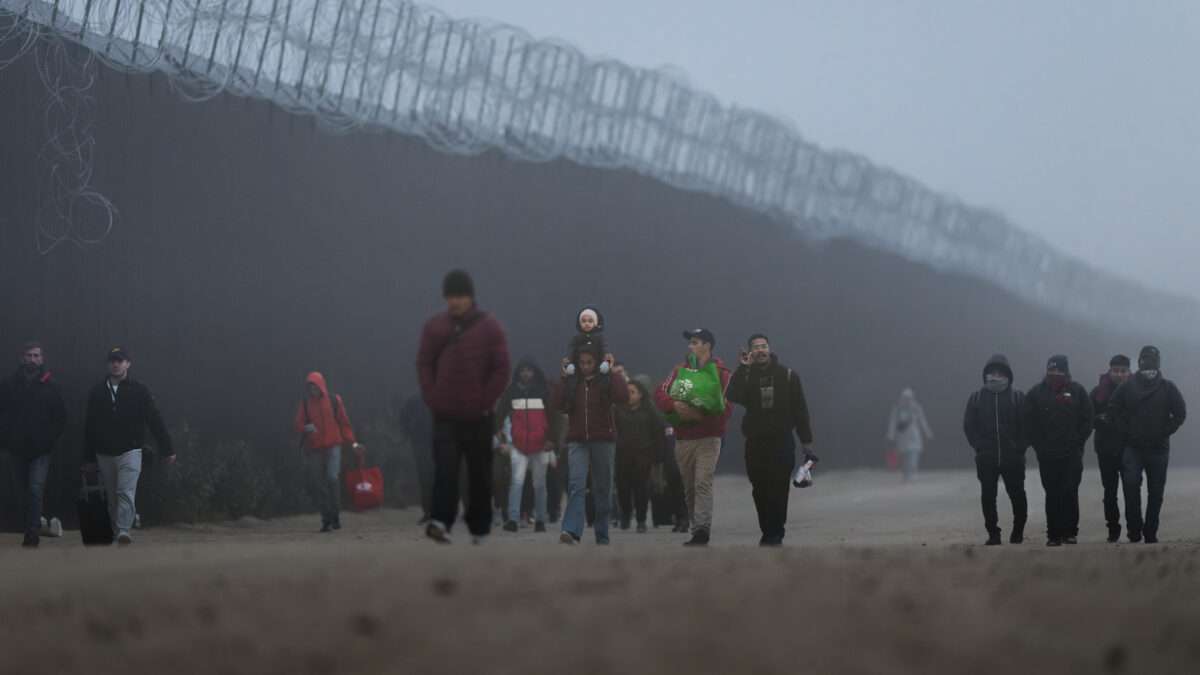En Banc Fifth Circuit Rules for Texas in Water Buoy Case, but Doesn't Resolve Issue of Whether Illegal Migration Qualifies as "Invasion"


Yesterday, in United States v. Abbott, the en banc US Court of Appeals for the Fifth Circuit ruled in favor of Texas in a case where the federal government is suing the state for installing floating buoy barriers in the Rio Grande River to block migration and drug smuggling, thereby creating safety hazards and possibly impeding navigation. The Biden Administration claimed this violates the Rivers and Harbors Act of 1899.
Texas argues the federal government incorrectly interpreted the statute, but also asserts that one of the "invasion" clauses of the Constitution gives it the power to install the buoys even if federal law forbids it. Article I, Section 10, Clause 3 of the Constitution states that "[n]o state shall, without the Consent of Congress, . . . engage in war, unless actually invaded, or in such imminent Danger as will not admit of delay." Texas claims illegal migration and drug smuggling qualify as "invasion," and therefore the Constitution gives the state the power to take military action in defiance of federal statues, and even in the absence of congressional authorization for war.
In an 11-7 decision largely divided along ideological lines (with more conservative judges in the majority), the en banc Fifth Circuit overturned appellate panel and trial court decisions that had ruled in favor of the federal government.
The majority decision is based on statutory arguments, concluding that the relevant stretch of the Rio Grande is not covered by the Rivers and Harbors Act because it isn't "navigable." On that issue, I think both sides have some good arguments, and I will leave it to analysts with greater interest and expertise. Significantly, the majority does not address Texas's "invasion" argument, thereby not overturning the panel and trial court rulings against Texas on that issue.
Texas has also advanced the "invasion" argument in another case, one dealing with the legality of the states SB 4 law, giving law enforcement broad powers to detain and expel undocumented migrants. So far, both the district court and a Fifth Circuit panel have ruled against the state on that point.
In a recent Lawfare article and an amicus brief in this case, I have explained why illegal migration and drug smuggling do not qualify as "invasion" under the text and original meaning of the Constitution. An "invasion" is an organized armed attack. In addition, I outline the dangerous implications of Texas's argument. If accepted by courts, it would give states nearly unlimited power to start wars without congressional authorization, and give the federal government a similar blank check to suspend the writ of habeas corpus (thereby allowing it to detain people, including US citizens, without charges).
In a concurring opinion in the en banc court, prominent conservative Judge James Ho argues that the court should have addressed the invasion argument. He contends that the meaning of "invasion" is a "political question" that the judiciary is not permitted to address. Other courts that have ruled that invasion is a political question have simultaneously concluded that the matter is left up to the federal government (while, in several cases, also simultaneously concluding that illegal migration does not qualify as invasion). Judge Ho, however, argues that courts must defer to the Texas governor's assertion that there is an invasion, at least so long as the governor is acting in "good faith."
This theory has breathtakingly awful implications. It implies a state governor can declare the existence of an "invasion" virtually any time he or she wants, and then "engage in war" in response—even without authorization from Congress. Moreover, Ho argues the governor can continue military action indefinitely, even if the federal government has had time to consider the situation, and opposes the state's actions.
The "good faith" restriction is not much of a constraint. Political partisans can persuade themselves that almost any interaction with foreigners they find threatening qualifies as an "invasion." If illegal migration and drug smuggling qualify, why not economic competition (many "national conservatives" view imports as a national security threat)? Why not supposedly harmful cross-border cultural influences (dangerous foreign ideas and art forms are "invading" our people's minds!)? And that list can easily be extended.
If this conclusion were required by the text and original meaning of the Constitution, perhaps there would be no way around it. But that isn't so. As explained in my article and amicus brief, historical and textual evidence overwhelming demonstrate that only an organized armed attack qualifies as an "invasion." As James Madison put it, invasion is "an operation of war." Nor is there any original meaning evidence indicating that courts must defer to state governments on this issue.
The "political questions" doctrine is a judicial invention, not something embedded in text and original meaning itself. I am skeptical that the doctrine makes much sense at all. Even if it should be used in some contexts, there is no reason to think the meaning of "invasion" is the kind of issue that courts cannot or should not resolve. The meaning of that term is at least as clear as that of many other words in the Constitution that courts routinely interpret. At the very least, the political question doctrine should not be interpreted to mandate the absurd consequence that a single state can start a war virtually anytime it wants—since there is virtually always some substantial amount of illegal migration and cross-border smuggling, at least so long as we have drug prohibition and severe migration restrictions.
Judge Ho also argues that actions by nongovernmental groups can qualify as "invasion." This may be true in some situations, as in the case of attacks by insurgents or terrorist groups. It does not follow that illegal migration, drug smuggling, or other ordinary criminal activity qualify.
Moreover, most of the evidence he cites relates to a situation in the 1870s where the governor of Texas used state militia to combat large-scale cross-border banditry from Mexico. This episode—occurring almost a century of the enactment of the Invasion Clause—sheds little light on the text and original meaning. In a recent opinion, Supreme Court Justice Amy Coney Barrett rightly cautions against reliance on "[h]istory (or tradition) that long postdates ratification." This is the kind of thing she had in mind.
In addition, the 1870s history doesn't really support Judge Ho's position. In an 1874 letter to the Attorney General (which Judge Ho helpfully reprints in an appendix to is opinion), Texas Governor Richard Coke argued that the Mexican bandits had gone beyond ordinary criminality, and "were making war on the people of Texas and their property." He also stressed that Texas state forces were "not authorized to cross the river for purposes of retaliation, nor to make war on the territory or any of the people of Mexico, but only to pursue marauders going out of Texas, and take from them and bring back property found in their possession belonging in Texas." This stops short of claiming a right to "engage in war." Perhaps most important, the Governor acknowledged that "the officers of the United States Government… have the power to prevent… enforcement" of his order to the Texas troops, and that he will withdraw the order if the federal government requests it. That's a far cry from the claim of virtually unlimited power to declare an "invasion" and engage in war in response claimed by Governor Abbott today.
The dissenting opinion by Judge Dana Douglas has additional criticisms of Ho's opinion on the "invasion" issue. I don't agree with all of her arguments. But she's right to point out that Texas's position "would enable Governor Abbott to engage in acts of war in perpetuity."
In a concurring opinion, Judge Andrew Oldham (another prominent conservative jurist), contends that Judge Ho is wrong to argue the majority was required to address the invasion issue. I think Judge Oldham is probably right about that question, but will leave it to commentators with greater expertise on civil procedure.
Yesterday's ruling is not a final resolution of the buoy case. Technically, it only lifts the preliminary injunction against the buoys issued by the district court. However, the majority's analysis makes clear that the trial court will have to resolve the case in favor of Texas on the issue of "navigability." If so, the invasion question need not be addressed, since the en banc majority signaled it does not have to be.
However, the invasion argument is still in play in the SB 4 case, and Texas—and perhaps other states—are likely to continue making it in the future. So long as they persist in doing so, I will keep on explaining why that argument is dangerously wrong.
UPDATE: In the original version of this post, I indicated that the vote in the en banc Fifth Circuit was 11-6, rather than the correct figure of 11-7. I apologize for the mistake, which has now been corrected.
The post En Banc Fifth Circuit Rules for Texas in Water Buoy Case, but Doesn't Resolve Issue of Whether Illegal Migration Qualifies as "Invasion" appeared first on Reason.com.





